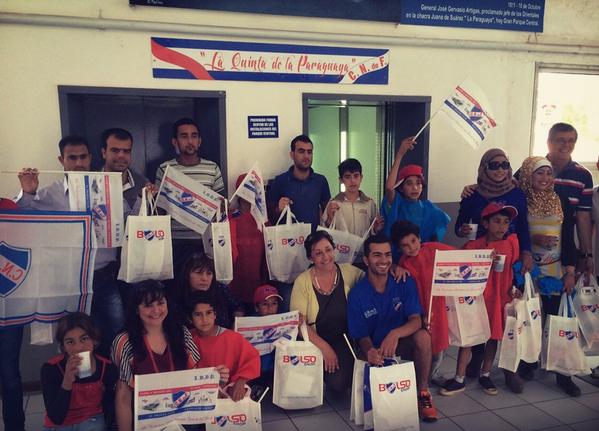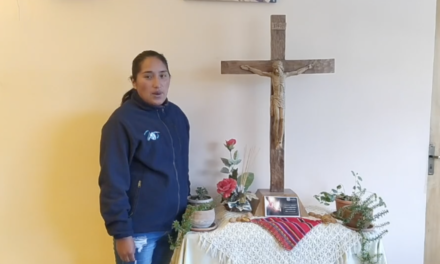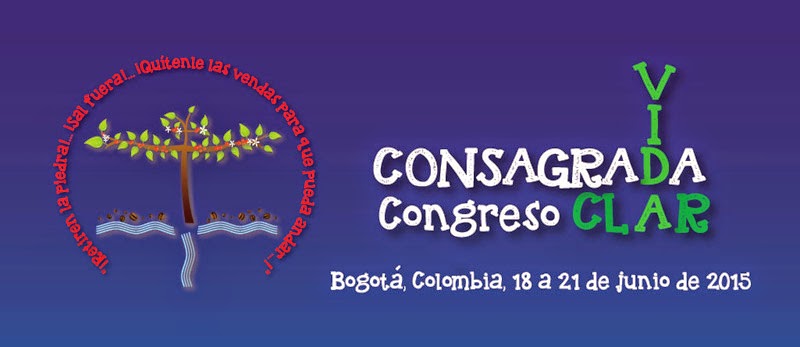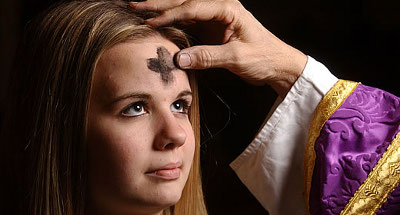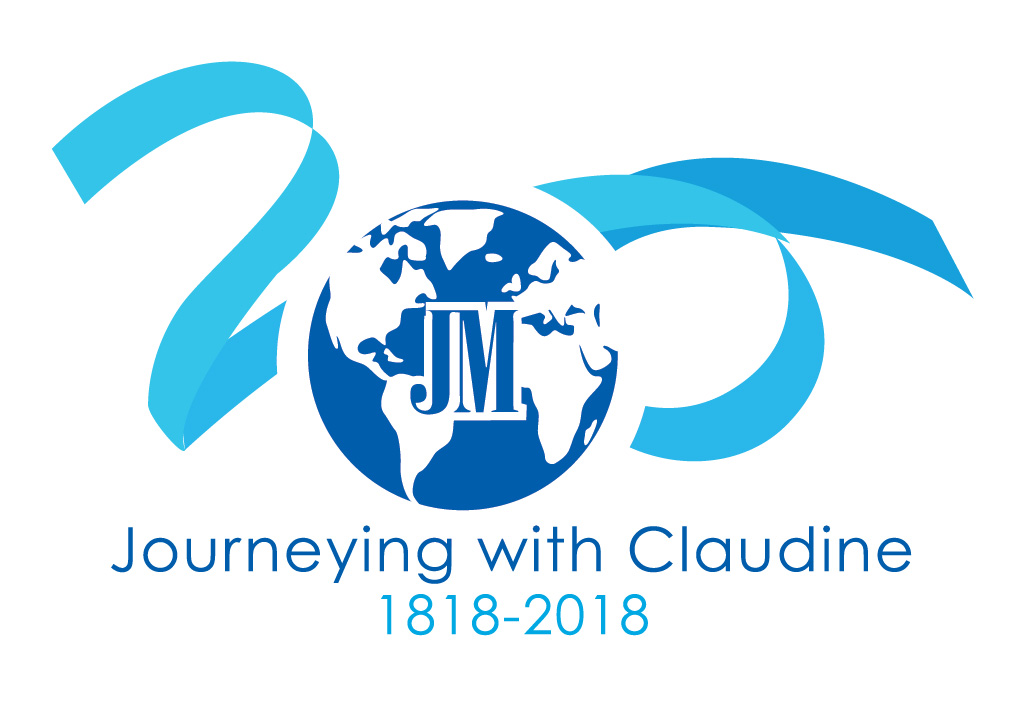JESUS AND MARY AND THE SYRIAN FAMILIES IN URUGUAY
On various occasions, friends of different types have asked us why Jesus and Mary has offered itself to collaborate with the insertion of the Syrian families that arrived to Uruguay and who had been refugees in Lebanon. The first and more obvious response that I always give is that which any person or group having a basic human sense can give: And why not? Why not help?
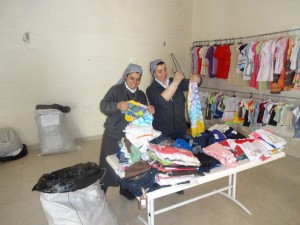 Evidently, we as Jesus and Mary also have our own personal reasons. On the one hand, we are a network of more than two-hundred educational and social centers in the whole world and, particularly one is present in the city of Aleppo, in Syria. Aleppo is a city greatly tried and with much suffering because of the war and, today our school is a home for the refugees. That is, for quite some time we have been receiving first hand news of the social and human devastation of that war. On the other hand, war, always, and the suffering and pain that it brings, have marked us since precisely, Jesus and Mary was born to take the orphan girls of the French Revolution and try to give them a life of dignity in spite of so much suffering and pain that they have gone through. And this foundational gesture continues to resound in our hearts today, two centuries later, because our updated objective or aim for the Congregation in the whole world is “to work for reconciliation there wherever we are, allowing ourselves to be moved by the miseries of our time”.
Evidently, we as Jesus and Mary also have our own personal reasons. On the one hand, we are a network of more than two-hundred educational and social centers in the whole world and, particularly one is present in the city of Aleppo, in Syria. Aleppo is a city greatly tried and with much suffering because of the war and, today our school is a home for the refugees. That is, for quite some time we have been receiving first hand news of the social and human devastation of that war. On the other hand, war, always, and the suffering and pain that it brings, have marked us since precisely, Jesus and Mary was born to take the orphan girls of the French Revolution and try to give them a life of dignity in spite of so much suffering and pain that they have gone through. And this foundational gesture continues to resound in our hearts today, two centuries later, because our updated objective or aim for the Congregation in the whole world is “to work for reconciliation there wherever we are, allowing ourselves to be moved by the miseries of our time”.
At the time that we voluntarily presented ourselves when we knew of the arrival of the Syrian families to our country, we thought also – or this is at the basis of everything – that in some way we try, to embody the Gospel of Jesus in ourselves, He who encourages us day after day. The Gospel that is inspired in an infinite number of texts of the Old Testament which show a God who bends down before the stranger, the orphan and the widow, as the one in Psalm 146, 9: “Yahweh protects the stranger, he sustains the orphan and the widow…”; then the Gospel, which continuously reminds us that we exist for others, for those who are different, and not for ourselves and for those who are the same as we are. This is the reason why Saint Luke reminds the Christians (those whom they called “those on the road”) how the Heart of Jesus of Nazareth vibrated. And He did this in a magisterial way through the parable of the Good Samaritan, that man that was going “on the road” but – different from the priests, Levites, etc. – he was the only one who acted according to the boundless heart of the good God because he was capable of taking care of the one who was suffering “outside on the road”.
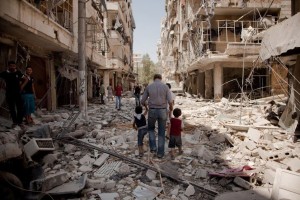 For Uruguayans, the Syrians are strangers, among them there is a widow with several children under her care, and because of the foolishness of the war, they are all orphans of many realities: home, work, securities, interior and external peace, etc. But they also have many values, the desire to go ahead and much joy in spite of so much pain and suffering… And, besides, they were in Lebanon, having lost everything, far away from their affections and securities. That is, “they were suffering outside on our road” of Uruguayans with a peaceful country, fairly developed, geographically far away.
For Uruguayans, the Syrians are strangers, among them there is a widow with several children under her care, and because of the foolishness of the war, they are all orphans of many realities: home, work, securities, interior and external peace, etc. But they also have many values, the desire to go ahead and much joy in spite of so much pain and suffering… And, besides, they were in Lebanon, having lost everything, far away from their affections and securities. That is, “they were suffering outside on our road” of Uruguayans with a peaceful country, fairly developed, geographically far away.
As Christians, can we look at each other in the eyes and try to get closer to God, without allowing ourselves to be challenged by this reality? Can we continue ”going on our way” justified by our daily occupations or, as I have Heard some say, because in Uruguay there are also needs?
Our answer to these questions was negative. We cannot and we do not want to continue on our way. And if in our country we also have needs, it is obvious that we also have to get close to them, but never in a way that we exclude “the stranger, the orphan and the widow”. The confirmation that this had sense was to find on the same road the Marists and Daniel, our Archbishop who was there present the day that the Syrian families arrived to our country.
Up to here the explanation of why we got involved in this Project with the Syrian families. Now we have to say how we collaborate as Jesus and Mary with them. When we met Javier Miranda and his team of the Secretariat of Human Rights to express our availability to help, in the first place we offered what we have within reach, what we know how to do: educate. And we received a response with open arms, magnificent, enthusiastic and of people enthused with the Project of opening the heart and the country to the refugees as a sign of making national solidarity something concrete.
And from Jesus and Mary, as an analogy with that principle of Archimedes – “give me a point of support and I will move the world”-, we are convinced that education is the lever that can give life, dignity, future to the life of all, especially of those who have suffered the most because of the reality and as a principle they have the things, with the Syrian families it is necessary to begin with alphabetization in the Spanish language. Without our language any enculturation of the Syrians in our country would be impossible. For this reason, two months before they arrived we constituted a group of 5 teachers and two persons responsible for the pedagogy experts in the teaching of a second language and of the Reading-writing who have been preparing a detailed program, day after day, to know how to deal with and carry out immersion in our language.
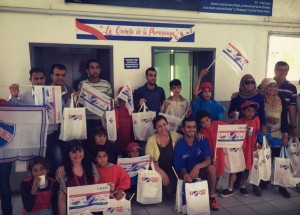 How has this month and a half been with them? The truth is that both at personal level as well as for the team of Jesus and Mary it has been and continues to be a very strong experience, very moving from day to day. Every morning I see and I enjoy seeing how the dwelling place (The Marist Home) becomes as “by magic” a school where children, adolescents and adults learn. The grillroom has become a class room for the little ones. And so at 8:15 in the morning the parents with their small children holding them by the hand, cross the 50 meters which separate them from the Home and they leave their children there who begin to play and to learn with the teacher and with the volunteer mothers of our school who also give an invaluable help. Then those parents walk back and go up to the first floor where their teacher is waiting for them in a large room where at the end of the room there is a black-board and some benches just like a normal class room. But at the other end of the room there is a large table that sometimes it pretends to be a trade fair or market to learn to buy, or other times it appears to be an office to learn, for example to draw up a register. Thus in this way, with the pedagogy of immersion in the language – without translators just as one who learns to swim throws himself into the water – and the teaching of daily things which they will face afterwards, they spend the morning until 11:45. On the ground floor are the class rooms of the “elementary” and “secondary” school. There is singing, different situations are represented, they learn to write and read in Spanish (we cannot forget the great effort that this demands from them, since their writing is Arabic signs and they write from right to left!) and so many other daily things of a school.
How has this month and a half been with them? The truth is that both at personal level as well as for the team of Jesus and Mary it has been and continues to be a very strong experience, very moving from day to day. Every morning I see and I enjoy seeing how the dwelling place (The Marist Home) becomes as “by magic” a school where children, adolescents and adults learn. The grillroom has become a class room for the little ones. And so at 8:15 in the morning the parents with their small children holding them by the hand, cross the 50 meters which separate them from the Home and they leave their children there who begin to play and to learn with the teacher and with the volunteer mothers of our school who also give an invaluable help. Then those parents walk back and go up to the first floor where their teacher is waiting for them in a large room where at the end of the room there is a black-board and some benches just like a normal class room. But at the other end of the room there is a large table that sometimes it pretends to be a trade fair or market to learn to buy, or other times it appears to be an office to learn, for example to draw up a register. Thus in this way, with the pedagogy of immersion in the language – without translators just as one who learns to swim throws himself into the water – and the teaching of daily things which they will face afterwards, they spend the morning until 11:45. On the ground floor are the class rooms of the “elementary” and “secondary” school. There is singing, different situations are represented, they learn to write and read in Spanish (we cannot forget the great effort that this demands from them, since their writing is Arabic signs and they write from right to left!) and so many other daily things of a school.
The progress and advancement in our language have been astonishing, wonderful from the very first day. The Syrians have a very good diction or pronunciation of the Spanish, since they have open vowels like we do, and that makes learning easier for them. But above all, many of them have great desires to learn, something impressive, and to insert themselves in our country. And another thing that has also helped very much in this learning is the great current – of back and forth – of affection among them and our teachers, the volunteer mothers and of us who go there as coordinators of the “Spanish School”. There is not one single morning when there are no embraces, smiles and laughter in great number.
It is obvious that in seven weeks they can acquire the first tools and the first training in the language. Then they will have to continue to practice and to enrich it much more. But there is no doubt that they are already acquiring a strong basis, even with some persons who are originally illiterate in their own language.
In synthesis for Jesus and Mary this is a project that has a great sense and value, and in spite of the logical effort that this demands, it is an unimaginable enjoyment. Though this does not surprise us, because it is already a life experience that when something is given in favor of others, it happens that at the end one receives infinitely more. No doubt that this is an experience of a shared blessing among the Syrian families and our educational community of Jesus and Mary. Let us hope that in the near future, when they are inserted in daily life, the Uruguayan society opens its arms to this people who have crossed the world to be with us and who have entrusted their pain, sufferings, their expectations and especially, their wonderful sons and daughters.
Elbio Medina
Jesus and Mary School

